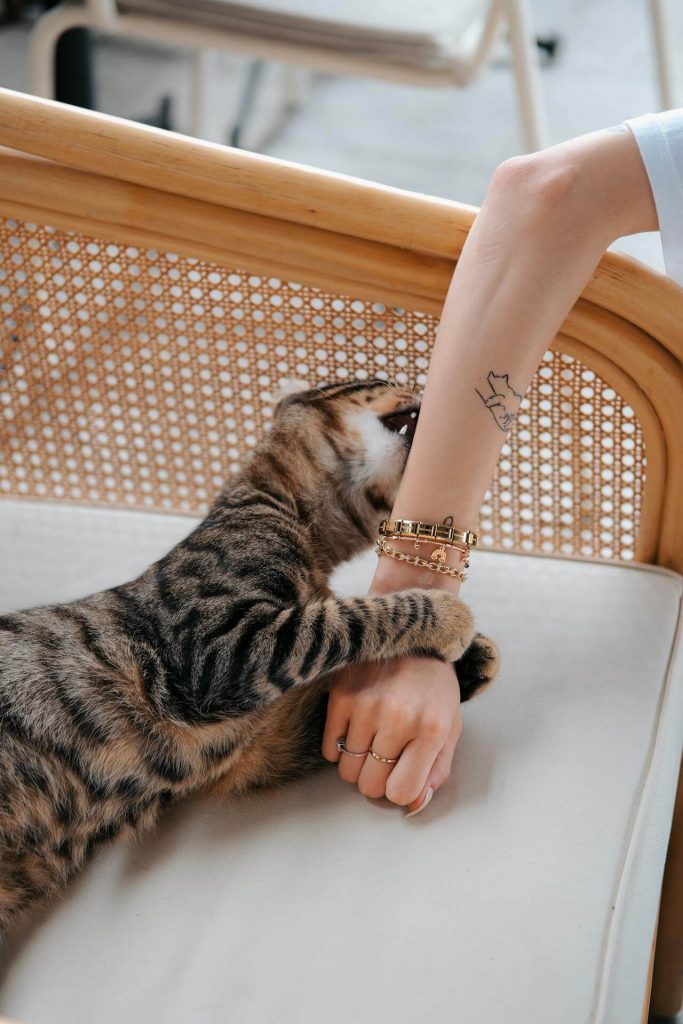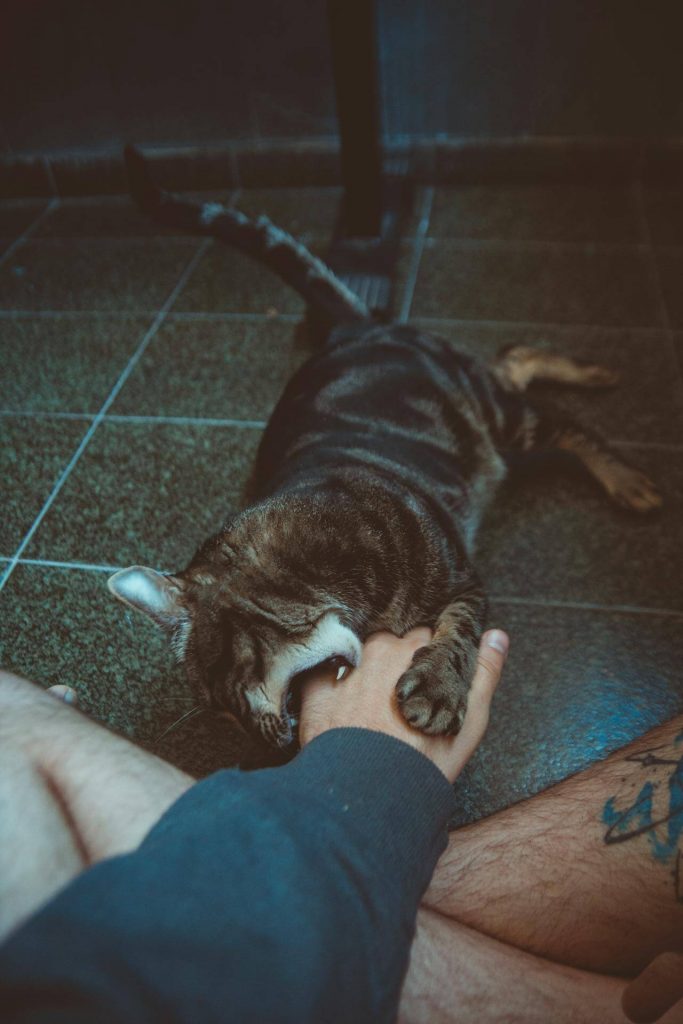Cats are fundamentally mysterious creatures, and one of their more perplexing behaviors is random biting. One moment they’re lounging contently or enjoying pets, and the next, they’re sinking their teeth into your hand.
As confusing (and painful) as this behavior can be, it’s important to understand that cats rarely bite without a reason. By exploring the common causes of seemingly unprovoked biting, you can take steps to address it and improve your relationship with your feline friend.
 Why Do Cats Bite Without Warning?
Why Do Cats Bite Without Warning?When it comes to pets, all behavior is a form of communication. Here are a few likely explanations for cats’ surprise attacks.
Lots of things are fun until they aren’t. For cats, what starts as a pleasant petting session can become overstimulating once they’ve had their fill of physical contact.
The moment when “more please” becomes “too much,” can be subtle, but there are usually signs. Watch out for:
Noticing these cues and giving your cat some space can help you avoid triggering a bite.
Cats are highly sensitive to their environment. Loud noises, unexpected movements, and unfamiliar people can provoke fear-based biting.
If you happen to be in close proximity to your startled cat, you may be the recipient of a bite through no fault of your own. Fortunately, getting to know your pet’s triggers can help you mitigate stressors.
When a cat’s frustration or excitement bubbles over due to an external stimulus, like a bird outside the window, it can sometimes be redirected to the nearest person. This type of biting seems out of nowhere, but it’s often the result of pent-up energy and unfulfilled hunting instincts.
Young cats and kittens often bite each other during play. Ideally, interactions with siblings and other household cats will teach them that biting hurts, but solo kittens may struggle to leave this behavior behind as they mature.
While single kitten syndrome isn’t a medically recognized term, it describes the behavioral issues (like biting) that can linger when your kitten isn’t socialized by other cats. Playful nips might be cute when your cat is tiny, but they can become a painful annoyance if the issue isn’t addressed before your cat reaches adulthood.

Cats are often secretive about their pain, but they may lash out as a way to protect themselves.
Dental problems, arthritis, or other medical issues can make even gentle physical contact uncomfortable. If your cat’s biting behavior is new or unusual, it’s worth consulting a veterinarian to rule out underlying health concerns.
Though there may still be times when biting takes you by surprise, it’s possible to greatly reduce this behavior.
Most bites happen when we fail to read the room. Pay attention to changes in your cat’s posture and take a break from petting before they become overstimulated. Keep a close eye on guests and small children who may not know what to look for.
Cats are born to hunt. When they don’t have an outlet for their natural prey drive, they may resort to stalking our hands and feet. Keep your cat mentally and physically engaged with interactive toys, puzzle feeders, and regular play sessions.
Fearful or overstimulated cats may need to retreat. Make sure they have access to a comfortable bed or perch in a quiet area of your home.
Punishing or scolding your cat is likely to make them fearful or aggressive, worsening biting behavior. The next time your cat shows their teeth, offer a toy or initiate play to redirect those predatory instincts.
With time and patience, your cat will learn to seek out a safe outlet when they’re feeling bitey.